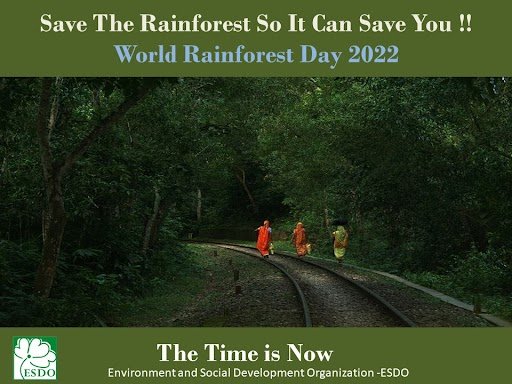World Rainforest Day 2022

Rainforest is characterized by towering, largely evergreen trees and heavy rainfall. With some persisting in their current state for at least 70 million years, rainforests are the longest extant ecosystems on Earth. ‘The Time is Now’ has been chosen as the theme for World Rainforest Day this year. The amount of forest is declining every year as a result of growing urbanization and human overuse. The theme is to raise awareness of how important rainforests are to the continuation of life on Earth.
The climate on Earth is stabilized by rainforests. The complex, innate processes that control Earth’s temperature are stabilized by rainforests, which also aid in maintaining the delicate balance of local climate systems. Because of their ability to absorb carbon dioxide, a greenhouse gas, and increase local humidity, rainforests are frequently referred to be the planet’s lungs. Additionally, rainforests regulate the planet’s climate, support vast quantities of plants and animals and generate nourishing rainfall. Rainforests also contribute to the global water cycle by releasing water into the atmosphere through transpiration, which results in clouds. For a better and healthy ecosystem and human life, rainforests are essential for the planet. World Rainforest Day was created to increase awareness about the preservation of rainforests, one of the most precious natural resources on planet Earth.


